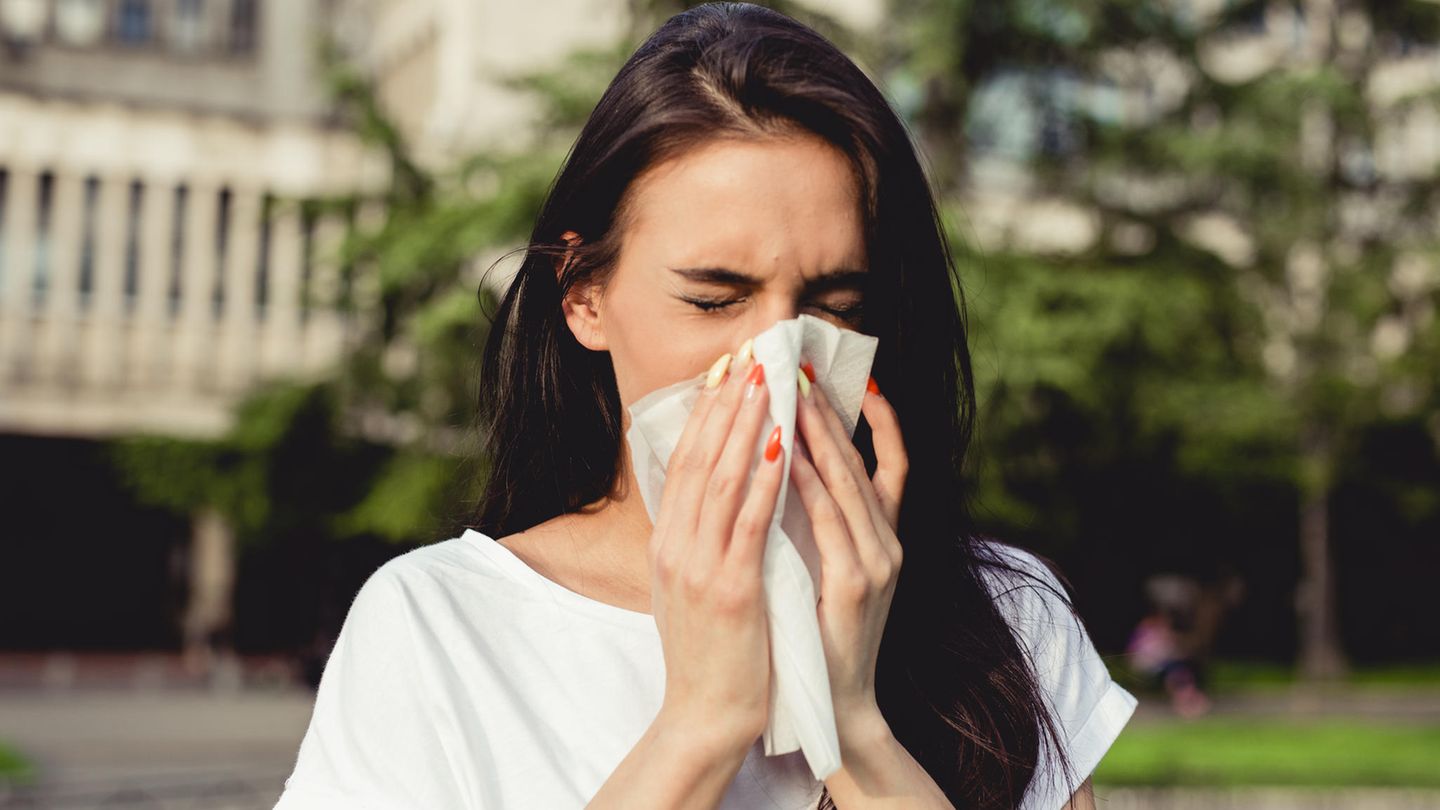Good to know The myth of the summer flu: why we catch cold even when the temperature is warm
What exactly is summer flu?
© blackCAT / Getty Images
Many people are currently catching colds – and that in the summer. Even in the warm season you are not immune to the nasty viruses. If your throat is scratchy and your nose is running, many people speak of summer flu. But that is misleading.
The disease announces itself with a slight fever, sore throat and feeling unwell. A day or two later, the cold follows, the cough sets in and the nose runs – the classic symptoms of a cold. But in summer many people are irritated when they wake up in the morning with the first signs of illness: is it even possible to catch a cold when the outside temperature is warm?
The answer is yes. Although the autumn and winter months in particular are considered the classic cold season, you can also become infected with the annoying viruses in summer. Contrary to what the word “cold” might suggest, it doesn’t take “cold” to get sick. “The cold itself only plays an indirect role. It is much more important that a sufficient number of pathogens find the right gap in our body’s immune system. This happens less often in summer, but it is still possible,” says the website the “HKK health insurance company”.
How strong the defense of the immune system and thus also the protection against pathogens is, is influenced by many different factors. Are we supplied with all the necessary nutrients and vitamins? Have we slept enough and had enough rest in the last few days and weeks? Are we possibly stressed?
Cough, fever and sore throat in the warm season are colloquially called “summer flu”. But the name is misleading, since in most cases it is an infection with classic cold pathogens. The real flu makes itself felt with a pronounced, sudden feeling of illness and high fever. It is caused by influenza viruses, against which there are vaccines. You cannot be immunized against the pathogens that cause a cold – mostly rhinoviruses. If there is talk of a “flu-like infection”, it is usually a somewhat more severe cold.
Summer flu: These factors affect the risk of catching a cold
Viruses have an easy time of it in winter: the cold, dry air makes them more stable. At the same time, the conditions for the “virus host”, i.e. the human being, are poor. The lungs suffer from the cool air and become more susceptible to pathogens. The immune system is also weakened due to the low level of solar radiation, and the vitamin D level drops.
This problem does not exist in summer. But cool air conditioning systems in buses, public buildings, trains or planes make it easier for people to become infected with the common cold virus. Although cold does not automatically lead to a cold, it can weaken the immune system, making it easier for viruses to spread throughout the body. Fans or cool summer evenings in short dresses also have a cooling effect on the body – which increases the risk of “summer flu”. How can this be prevented?
prevent summer flu
In winter as in summer, washing your hands is the best protection against pathogens – it is best to clean your hands several times a day with soap and water for 20 to 30 seconds. Contrast showers and sauna sessions can also prevent colds by strengthening the body’s defences. In summer, it is important to pay attention to air conditioning systems that are set too cold and to draw the attention of train or flight attendants to this. Anyone planning to be out and about all day should pack a thin jacket or scarf for the cool evening hours.
Heal naturally
Sore throat, diarrhea, sleep disorders: You should know these seven home remedies
And what to do if you get caught despite all the precautionary measures? As in winter, the usual home remedies will help. That means: drink a lot of water, take it easy, inhale and suck cough drops – preferably sugar-free ones.
Sources:HKK health insurance / Stiftung Warentest
ikr
#Subjects
